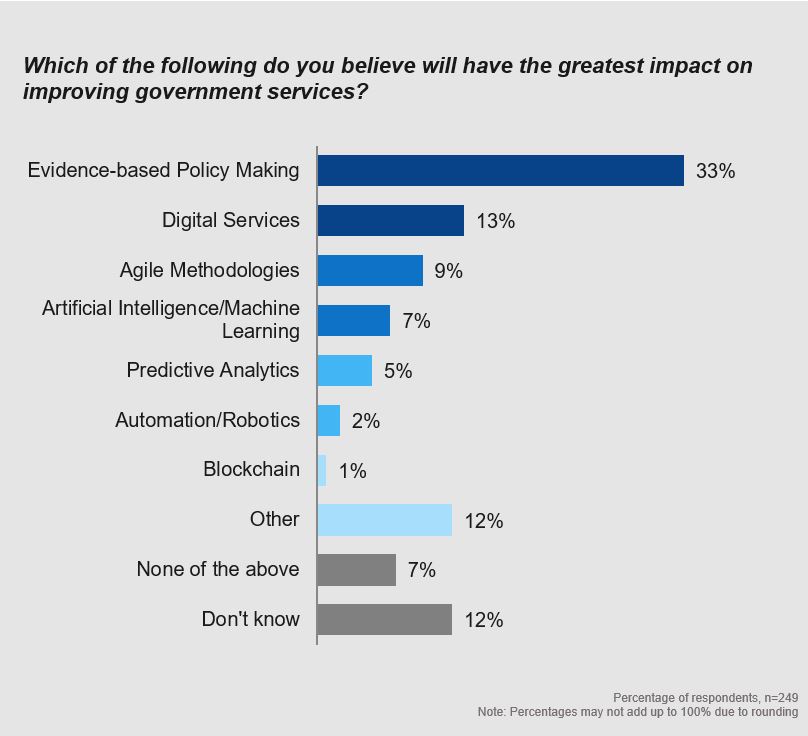Feds Buy Into Evidence-Based Policy Making for Government Services

The unprecedented technological evolution in government makes it easy to forget about another development: the growth, change, and improvement in the delivery of federal government services. To learn more, Government Business Council (GBC) ― on behalf of Grant Thornton ― deployed a one-question poll to non-DOD federal employees in November 2017:
Which of the following do you believe will have the greatest impact on improving government services?
The survey received 245 responses from employees representing a number of federal agencies. The findings were conclusive ― among the options presented, respondents identified evidence-based policy making as most likely to have the greatest impact on the improvement of government services.
While still evolving in definition and influence, evidence-based policy making is entering the mainstream of federal government practice ― in fact, initial conversations held by the Commission on Evidence-Based Policymaking have already led to the drafting of the OPEN Data Act, legislation that aims to “let the private sector or nonprofits… access this data, find ways to use, build data and, again, get more bang for the taxpayers’ dollar.” Indeed, the use of both quantitative and qualitative data as evidence of the actual, on-the-ground effectiveness of public policy measures has generally enjoyed bipartisan support since its popularization in the U.S., and has recently resulted in the passage of the Foundations for Evidence-Based Policymaking Act (H.R. 4174).
The share of of respondents identifying evidence-based policy making (33%) is several times larger than the second- and third-highest ranked shares ― identifying digital services (13%) and artificial intelligence/machine learning (7%), respectively.
A considerable share of respondents (12%) opted to provide an answer not listed in the survey response options. Among these Other responses, suggestions related to the broad operations of the federal government were most common. Suggestions related to the government’s management of technology also featured prominently, and some respondents showed a sophisticated understanding of their organization's information technology (IT): one employee cited “knowing your end-users” while another indicated “investment in applications that will help agencies be more productive” as most likely to have the greatest impact on improving government services.
The survey response options receiving least mention in the survey ― e.g., predictive analytics (5%), automation/robotics (2%), and blockchain technology (1%) ― are still entering the federal employee’s lexicon. It is possible more weight may be placed on these developments’ importance once they are more widely recognized. Still, it is surprising that a relatively small share of respondents selected automation/robotics given the prominent media coverage of these technologies in recent months.
For now, it seems that federal employees have bought into evidence-based policy making, and are expecting it to have a meaningful impact on the effectiveness of the next-generation government.
This post is written by Government Business Council; it is not written by and does not necessarily reflect the views of Government Executive Media Group's editorial staff. For more information, see our advertising guidelines.






